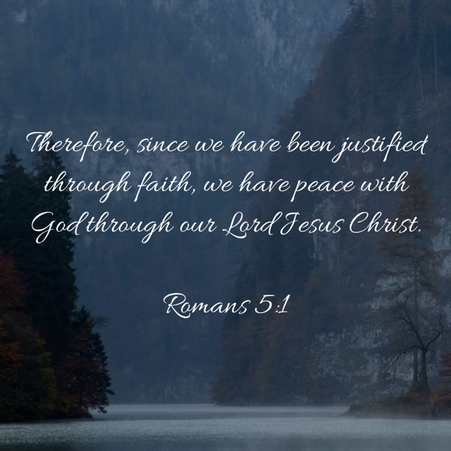|
Good morning!
We're so glad you decided to join us for this first Sunday of Advent.
When we meet in person, we share our joys and concerns with each other. If you have prayer requests to share, you can add them to the comments on this post. When you are ready, use this prayer to get started.
Dear Lord, as we think about all that we are going through as individuals, in our church, in our community, across our nation, and around the world, we know that we are not equipped to handle it all. We know that we are bound for disappointment and failure.
But God, we also know that you are able. And so, instead of relying on our own intelligence or goodness or strength, we turn to you this morning, and we ask for your protection and your strength. Help us to listen to your voice. Help us to read your word and act on it. Help us to practice our faith each day. Help us to seek your will, to support each other, and to have peace and confidence as we watch for your kingdom to come into our world. We pray this in the name of Jesus Christ our Lord. Amen.
This week's lesson is on Ephesians 6:10-18.
Introduction
In 1768, Samual Adams and James Otis Jr. wrote a statement known as the Massachusetts Circular Letter. It was a statement in response to the British government’s Townshend Acts, which were passed in 1767 and imposed import duties in the colonies on glass, paint, paper, lead and tea. Adams’s and Otis's statement argued that, in imposing such duties, the British government was violating its own Constitution and the natural rights of the colonists. Even though the statement originated in Massachusetts and its first readers were there, it was circulated to other representative colonial bodies as well. After reading the letter, several of the colonies took up the cause of resisting the British laws. Eventually, the opposition was one factor that led to the American Revolution and ultimately independence from England.
Background
Most Bible scholars believe that Ephesians was such a circular letter. Even though the letter was addressed to the church in Ephesus, it was probably just one of many churches that received a copy of Paul’s letter. Churches may have received the letter and then passed it along, changing only the name of the church to which it was addressed. The copy that remains is the one addressed to the Ephesians. The reason for this theory is that, unlike many of Paul’s other letters, Ephesians does not address any specific problems in the church. Instead, it identifies themes and struggles common to all Christians in all churches, even today. In the passage for today’s lesson, Paul likens the Christian life to a struggle, a battle against the forces of evil inside and outside each person. Yet Paul says that we, as Christians, have the tools to overcome evil. We have at our disposal weapons that, if we will use them, will protect us and will ultimately overcome the devil’s schemes.
Empowered by God (verses 10-12)
We never know when we will face a challenge to our faith. We never know how that challenge may come. And so we must be ready at all times. We can never let down our guard. How do we stay prepared? By establishing godly habits that we observe in good times and in bad times. By never letting ourselves be lulled into the sense that we are beyond temptation or sin. Instead, the Christian is to cultivate an understanding that, as long as we rely on God, we do not need to fear Satan. Taken together, these habits and practices are what Paul calls “the full armor of God.” Evil will come into all of our lives at one time or another. But no matter when evil arises within us or around us, we can be ready for it. We don’t need to retreat or succumb to its power because God is far stronger. These habits are not meant to make us stronger in ourselves but to teach us to rely on God and on God’s word all the time. Martin Luther writes in his famous hymn, “A Mighty Fortress is Our God,” that no matter how much we try, we are no match for the devil. But he also writes that even in a world filled with devils “we will not fear, for God has willed his truth to triumph through us.” Paul tells the Ephesians (and us) to be strong “in the Lord and in his mighty power.” The Christian life is a life of growth and maturity, but it is ultimately a life of learning to depend on God and not on ourselves. Therefore, the elements of the armor of God call us to focus on God’s power and to recognize our weakness and reliance on God strength, even in our weakness.
Outfitted by God (verses 13-18)
Next Paul breaks down exactly what each of these habits and beliefs are, which he compares to different parts of a military uniform in Paul’s day. First, he says, we are to stand firm with the “belt of truth” buckled around our waist. The Christian view of life is not wishful thinking or a denial of reality. It does not portray us as better than we are. In fact, the truth is that we are rebels who are without hope unless we had received God’s mercy. But the truth is that we have already received that mercy through Jesus’ death and resurrection. Next Paul tells us to keep the “breastplate of righteousness” in place. The Roman soldier’s breastplate protected his torso from an enemy’s frontal assaults. The Christian should not simply rest on the fact that he has received God’s mercy through Christ. He must also do his best each day, with the help of the Holy Spirit, to live righteously, to do the right thing in every situation. As we continually try to do that, we grow in character, and that protects us from temptation. Next, Paul says that we should wear shoes of the gospel of peace, which gives us constant protection from evil. This verse is difficult to interpret, partly because peace in the New Testament has at least five different meanings depending on the context. In this case, it most likely means that we have peace with God and wholeness within ourselves because Christ has removed the sin that had separated us from God. In addition to all of the other tools at our disposal, we are to take up the shield of faith. In Roman times, shields were large pieces of metal or leather. They protected almost the entire body. When soldiers held these shields and stood side-by-side, they could protect each other and even use their shields as offensive weapons. In the same way, our common faith can protect us from all of the doubts and objections that we encounter, which Paul likens to flaming arrows that threaten to hurt or kill us. And by joining together as a community, our common faith can actually protect each other and help us in our struggle to overcome evil in our lives and to battle injustice in the world. Paul says we also need to take the helmet of salvation. Salvation is more than being saved from death and hell after this life is over. It is being saved from a life of purposelessness and meaningless here and now and, instead, being free to live lives of love and joy. Finally, Paul says, we are to take the sword of the Spirit, which is the word of God. Of course, that refers to the entire Bible, but it also refers to the overall message of how God has acted in history and how God still acts today. Paul likens God’s word to a sword. However, it is a weapon not to be used against other people but to be used in our fight against Satan’s advances. As Paul points out in the early verses of this passage, our battle is not against flesh and blood. Our battle is against spiritual forces in the heavenly realms. By reading and understanding the Bible as much as possible, guided always by the Holy Spirit, we are better equipped to engage in that spiritual battle. The Christian believer must always pray in the Spirit. That is, he must constantly stay connected to God and allow God, through the Holy Spirit, to guide his thoughts and prayers. Although Paul has dropped the military metaphor now, it is clear that none of these spiritual weapons will make much difference if we try to use them while being disconnected from God. For a Christian to succeed and represent Christ in the world, it is important that he or she listens to God’s leading. We must let the Spirit guide our thoughts as we pray for those who are in need. Again, our focus, even in prayer, is not on what we want. Our focus is on identifying where God is working, where God is leading and where people are in need. Then we are to pray for God’s will in those situations. Question: How would you interact differently with others if you first paused to remember that Satan is the enemy and not other people? How does this insight make it easier to obey Jesus’s command to love your enemies? (Matthew 5:44)
Conclusion
God’s people are always under attack from the adversary. When we are made new in Christ, our lives are at odds with the world around us, the world that Satan steadfastly tries to align with his evil ways. We always feel the tension of living in a world battered by evil forces; we feel the pressure that the forces of evil press on us. It is easy and natural to feel weak when it seems that darkness surrounds us. But by God’s provision we are strong. There are no flaws in his armor, no gaps in the protection it supplies. Reviewing all that God has provided, we have renewed strength to stand firm in every circumstance. Though the spiritual battle may often seem bleak, we know that God holds victory in God’s hand. God will choose the moment to overturn all that opposes God and God’s people. What seems slow to us is the patience of our Lord, giving each person time to accept the gospel and turn from the darkness of his previous life. So put on your armor! And remember who the real enemy is. Then, knowing your enemy, do no harm to anyone who is not your enemy — namely every creature that bears the image of God. Instead, recruit those who need God’s armor. Offer them the protection that comes from accepting the truth about Jesus. Pray for those who join you in the fight. And keep praying for all who choose to remain defenseless against the devil’s attacks.
Prayer
O God, you have met our every need through Christ. By our power may we stand faithfully and firmly as your people, no matter what we may encounter. In Jesus’ name we pray. Amen.
Benediction
This week's benediction is from the New International Version.
Next week, we will be starting our winter quarter. If you haven't been back to join us in person, we would love to invite you to come. The daily readings for the winter quarter are in the file below.
The lesson next week will be on Luke 1:8-20.
0 Comments
Leave a Reply. |
AuthorWe are a small, rural Presbyterian church in southwestern Pennsylvania. Archives
July 2024
Categories
All
|
||||||



 RSS Feed
RSS Feed